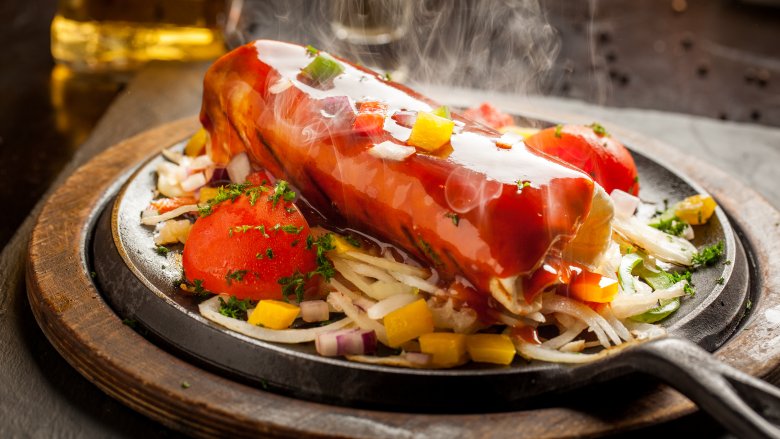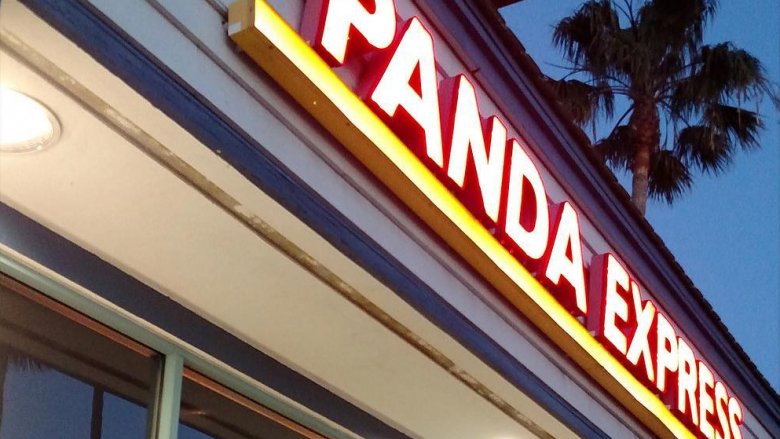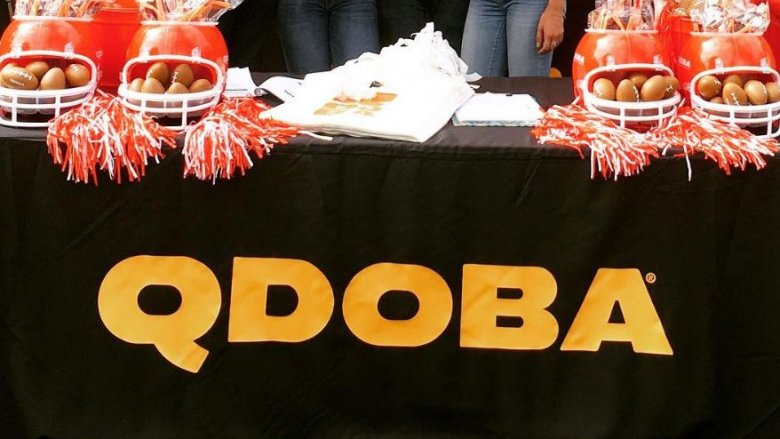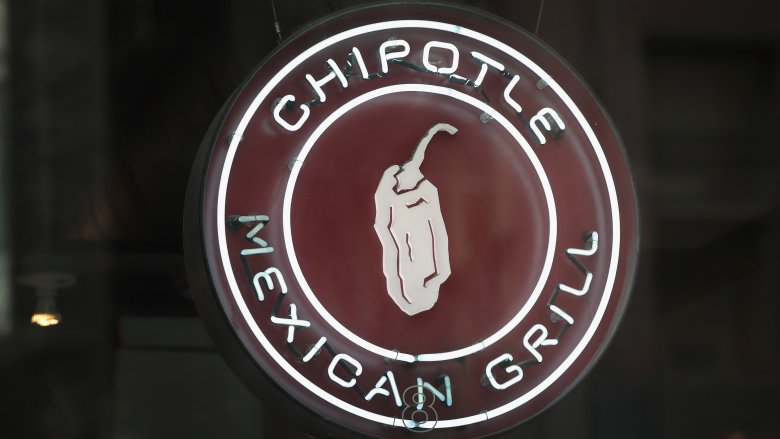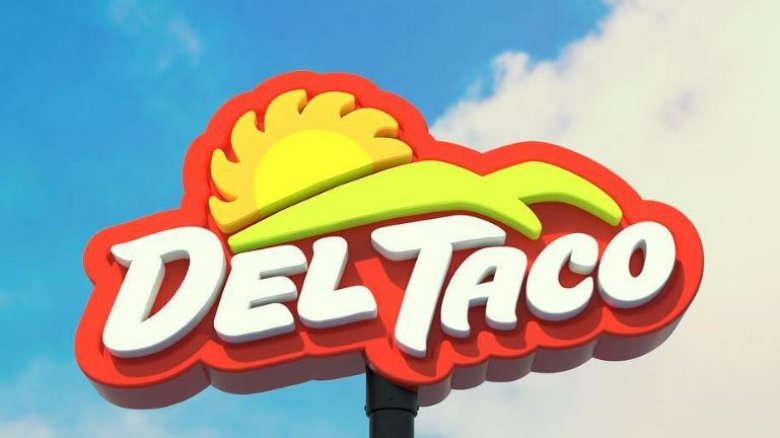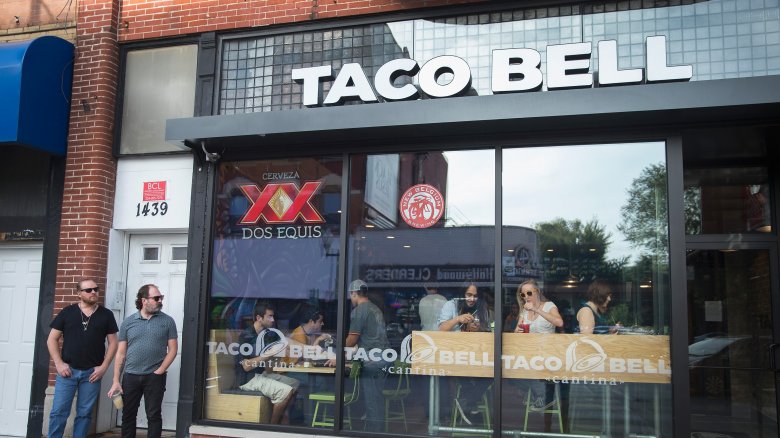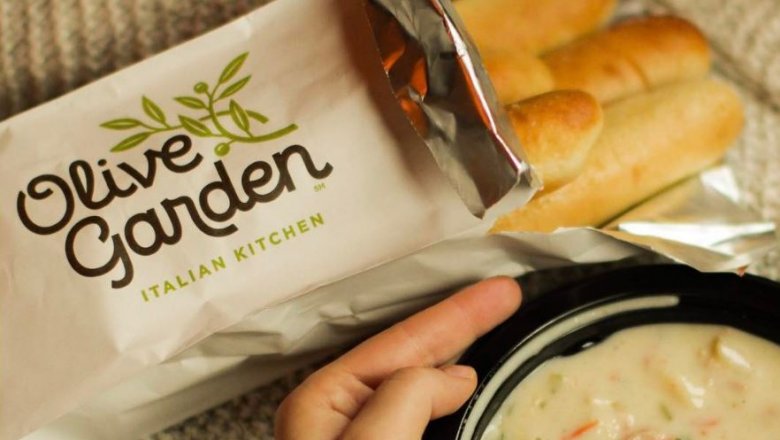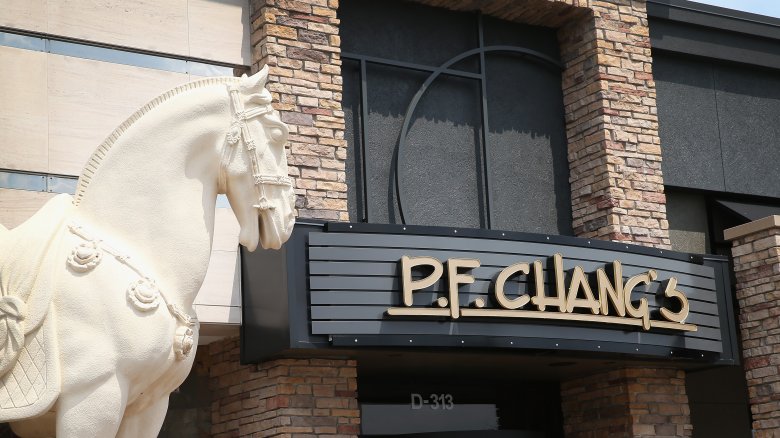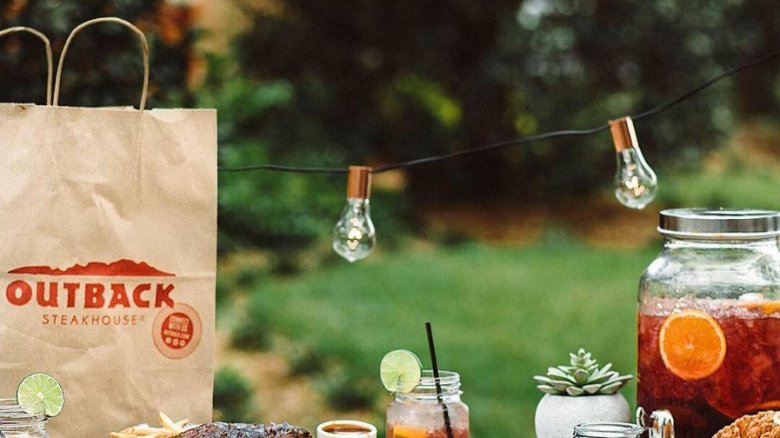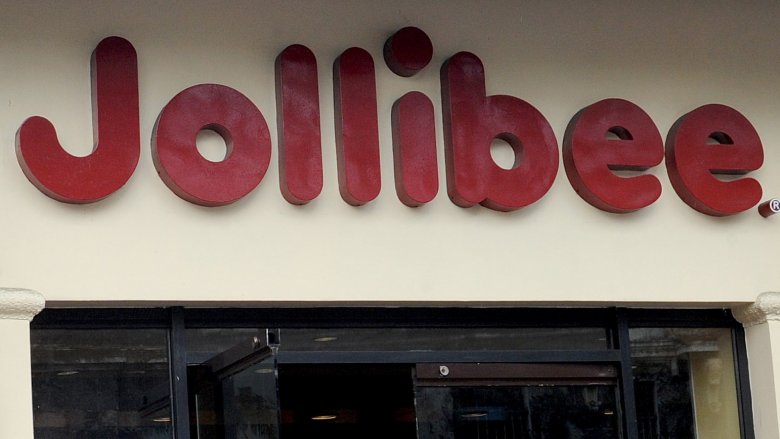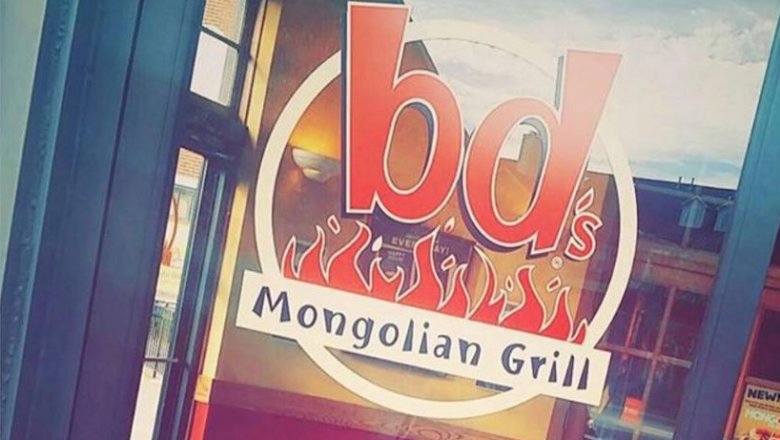Restaurants You Didn't Realize Aren't Authentic
There are a lot of restaurants that brand themselves as serving the cuisine of a certain country, but how often are you actually getting authentic food? It turns out that most of these restaurants aren't exactly serving up genuine dishes, although they may resemble foods from their supposed country of origin. If you're a fan of any of these restaurants, be warned: What you see is not always what you get.
Panda Express
If you walk into a Panda Express expecting authentic Chinese food, you're going to be disappointed. While the food is authentic by American Chinese food standards, anyone who is from China can tell the difference. American Chinese food has evolved into a cuisine in its own right.
Haiming Liu, author of From Canton Restaurant to Panda Express: A History of Chinese Food in the United States, explained the rise of American Chinese food to NPR. "It still takes time for many Americans to like Chinese food," he said. "It's a historical problem for Chinese food, and Chinese restaurants have to do something about it." Chinese restaurants have long adjusted traditional dishes so that they would be more tolerable to the American palate, and it's this Americanized Chinese food you're getting when you go to Panda Express.
Qdoba Mexican Eats
Most of your favorite "Mexican" restaurants are probably not serving actual Mexican food. L. V. Anderson went so far as to call the rise of knock-off Mexican food an "injustice" in Slate. According to Anderson, "Privileged whites profit from Mexican food while Mexicans are deprived of credit for their own creations."
Qdoba is just one of the many popular "Mexican" chains owned and run by non-Mexicans that serves Americanized Mexican dishes. Qdoba's head chef, Ted Stoner, defended the chain's food to The Huffington Post, saying "But who is to say what is truly 'authentic'? When it comes to flavor, a major component of our culinary team's job at Qdoba is to translate the spices, seasonings, ingredients and flavors from Mexico for the American palate."
Chipotle Mexican Grill
Qdoba's main rival, Chipotle Mexican Grill, isn't off the hook, either. The food may be tasty, but it's far from authentic. A representative from the restaurant chain told The Huffington Post that even Chipotle acknowledges that some of their foods are not "authentic Mexican food."
John Mariani, author of How Italian Food Conquered the World, said in the same interview that American Mexican food is a distinctly different type of food. "The burrito and chimichanga aren't really familiar foods to most Mexicans from Mexico," he said. "They are much more Mexican-American or Tex-Mex than they are real Mexican food."
Del Taco
"What about Del Taco?" you might be wondering. "Surely they have some real tacos." Nope, sorry. Not only are Del Taco's tacos not authentic Mexican street tacos, but the fast food version is also more expensive.
"At $2.29, the [carne asada street] taco seems like a relative steal," wrote Los Angeles Magazine. "Or at least that thought creeps in your head before realizing that they made a fast-food imitation twice as expensive as the real thing."
Taco Bell
Taco Bell is credited with popularizing Mexican food in America, but that doesn't mean it tastes like food you would find in Mexico. In fact, the food served at Taco Bell is so inauthentic that the franchise has failed to break into the Mexican market — twice. Its locations in Mexico didn't catch on, and quickly closed, in spite of the fact that Taco Bell tried to market their menu items as "Americanized."
Olive Garden
Italian food doesn't fare much better. Olive Garden claims to serve guests authentic Italian food, but The Huffington Post reported that "Olive Garden's mission is to serve food that caters to an "average" American palate, not an Italian one." Several of their dishes aren't even served in Italy, and even the ones that are tend to be unimpressive to people who are actually from Italy
P.F. Changs
P.F. Chang's brand of Asian fusion is so inauthentic that it plans to market itself as an American bistro in China. The restaurant doesn't hide the fact that its dishes aren't authentic. While some of their foods are based on actual dishes from various Asian cultures, others are made up by the chefs.
"If you want a classic Japanese sushi experience, you're not going to come to us," CEO Michael Osanloo told Business Insider. "But if you want some amazing rolls — that are pretty traditional, delicious — we rock at that."
Outback Steakhouse
Outback Steakhouse is well known as an Australian restaurant, but Australians aren't buying it. Besha Rodell, a native Australian, wrote in LA Weekly: "Just the name 'Outback' makes me angry — in the cynical hands of public relations professionals, it's lost all meaning." According to Rodell, "The owners of Outback specifically didn't visit Australia because they didn't even want to take the chance that they'd be influenced by its culture or cuisine."
Jollibee
If you're craving some Filipino food, it might be tempting to go to fast food joint Jollibee, but don't be fooled. The franchise may be popular with Filipino-Americans who view the restaurant as a reminder of the Philippines, but the food served there is the fast food version of Filipino food. It tastes good, but only slightly resembles the food that would be served in a Filipino home.
BD's Mongolian Grill
Probably the greatest offender on this list, BD's Mongolian Grill is about as Mongolian as a hamburger. In short, it's not. The business was started by an American in the suburbs of Detroit. While the do-it-yourself theme is meant to mimic "the ancient practices of Kublai Khan's hunting parties, who cooked on their shields," according to Startup Nation, the food itself doesn't really resemble authentic Mongolian cuisine.
"What is Mongolian cuisine?" wrote John Henderson in The Denver Post. "You like mutton? You'd better. There's mutton. Then there's more mutton. When you get tired of that, you have... well, mutton." Henderson traveled to Mongolia to sample authentic regional cuisine and found that it's nothing like what's served at Mongolian Grill.
"So here I am in a traditional Mongolian ger seeing my Mongolian barbecue look nothing like BD's Mongolian Grill on the 16th Street Mall," he said. "BD's? It's an American chain." What about the story of cooking on shields? Henderson wrote that it's "an urban myth" and that the shields used by "the Mongol hordes" were made out of leather, thereby making them impossible to cook on.
